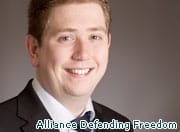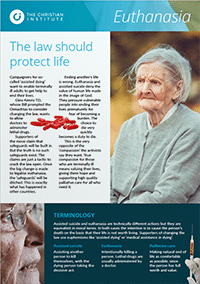The UK could be in breach of European law if it legalises controversial techniques creating three and four-parent babies, a religious liberty organisation has warned.
In a legal opinion to the European Parliament, lawyers for Alliance Defending Freedom (ADF) argued that the procedures involve altering the human germ line, which is explicitly banned in an EU directive.
Earlier this month, Westminster MPs voted in favour of regulations allowing two techniques – Maternal Spindle Transfer (MST) and Pro-Nuclear Transfer (PNT) – despite mounting concerns over their ethics and safety.
Skirt the law
Lawyer for ADF Robert Clarke commented: “Politicians should not be allowed to skirt the law just because they want to push through legislation that might otherwise receive appropriate scrutiny”.
Several MEPs asked ADF to provide a legal opinion on the legality of the regulations in light of the EU directive, which prohibits germline modification.
The opinion said: “Considering the directive in light of its purpose – to ensure the safe provision of healthcare – given the express inclusion of these sorts of techniques and the explicit banning of any gene therapy trials then the proposed course of action in the UK will clearly fall within the prohibition, as it is likely to be interpreted by the UK.”
Violate human dignity
Health Secretary Jeremy Hunt received an open letter from 44 MEPs ahead of the UK vote in the Commons, highlighting the same issue.
MEP Dr. Miroslav Mikolášik said: “The UK’s proposals violate fundamental standards of human dignity and integrity of the person”.
“They are out of line with the rest of the European Union and civilised world”, he added.
House of Lords
If passed by the House of Lords, the UK will be the only country in the world to legalise MST and PNT.
MST involves replacing the nucleus in a healthy donor egg with the nuclear DNA from the prospective mother – resulting in a child with DNA from three parents.
PNT creates a child from four different individuals (a chromosomal mother, a chromosomal father, an egg mother and a sperm father).


